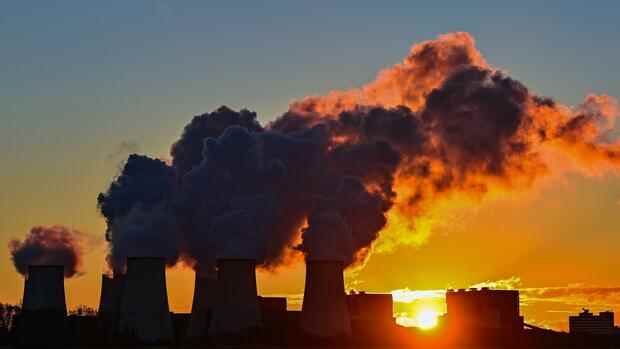Financial institutions argue that they want to drive transformation in the industry. However, a recent study raises doubts.
(Photo: dpa)
Dusseldorf Despite numerous sustainability initiatives, banks around the world have provided more than $1.5 trillion in financing to the coal industry in the past three years. This is the result of a study by the environmental organization Urgewald. This happened primarily in the form of loans and so-called underwriting mandates. The financial industry calls “underwriting” the process in which risks are assessed, defined and priced.
The study focused on financing for companies that are active in coal mining, coal trading, transport or the use of coal. The period from January 2019 to November 2021 was evaluated. The environmental organization published the figures together with 26 international partner organizations. They come from the global database “Global Coal Exit List” (GCEL), which is maintained by Urgewald.
Overall, according to the study, banks from the six countries China, USA, Japan, India, Great Britain and Canada together are responsible for 86 percent of all bank financing for the coal industry.
Just eight countries are responsible for around 85 percent of investments in the coal industry – Germany is one of them. According to the research, Deutsche Bank is also following the international trend towards underwriting. A total of around 1.5 of the total of 3.4 billion US dollars flowed in the form of loans and underwriting mandates from Deutsche Bank to expanding power plant operators.
Top jobs of the day
Find the best jobs now and
be notified by email.
The world’s largest lenders are Japanese banks Mizuho Financial and Mitsubishi UFJ Financial. Mizuho said the report does not reflect the current situation. The bank develops sustainability strategies together with its customers. Mitsubishi UFJ declined to comment.
When it comes to underwriting, ten Chinese institutes lead the ranking. The frontrunner is the Industrial and Commercial Bank of China (ICBC), which did not respond to requests for comment.
Deutsche Bank in 40th place
Among German financial institutions, Deutsche Bank ranks 40th out of 709 when lending and underwriting are combined. Because of its subsidiary DWS, it also ranks 28th out of over 4,900 in the investor ranking. The Allianz Group even occupies 20th place in the international investor ranking.
According to the study, as of November 2021, $469 billion was invested in stocks and bonds of expanding coal companies worldwide. The world’s largest asset manager Blackrock is the leading investor in such companies with a volume of 34 billion dollars. Blackrock declined to comment.
“The argument of the banks is usually: We invest in these companies to help them with the transformation,” explained Jakob Thomä, head of the German branch of the “Two Degrees Investing Initiative”. For the most part, however, a strong transformation is simply not taking place in the coal industry.
“Net zero by 2050 means: no more new coal from now on,” says Thomä. In the medium term, you have to get to the point where no more money flows into non-climate compatible activities. “Despite all the sustainability initiatives, this is not the case at the moment, as you can see. This is an important signal for the field of sustainable finance.”
However, withdrawing completely from the coal industry also harbors a risk, according to Christian Klein, Professor of Sustainable Finance at the University of Kassel. “If I retire from an industry as an owner, I no longer have any influence on what happens in this industry.”
However, the question of whether the “coal mining” business model is still viable at all is justified. “Here, investors should think carefully about whether investments still make sense from a risk perspective.”
Overall, however, a change in the financial sector can be observed. “For the big step, however, we need politics,” says Klein.
With agency material.
More: Many customers expect more climate protection from their bank
